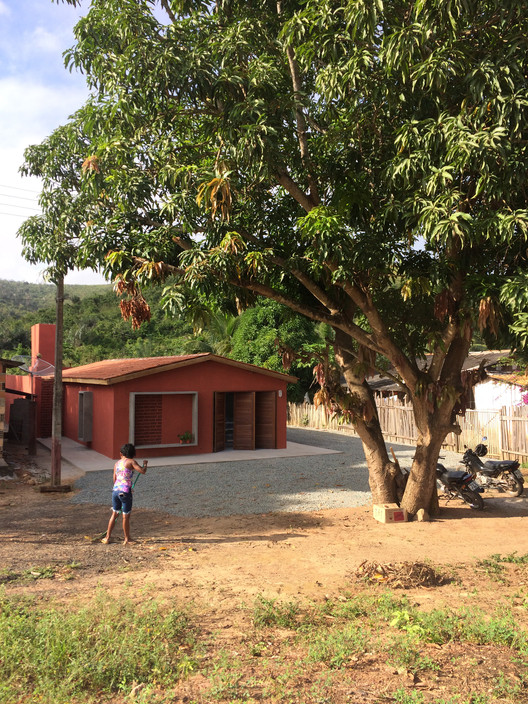
-
Arquitetos: Estudio Flume
- Area: 106 m²
- Year: 2018
-
Lead Architects: Christian Teshirogi, Noelia Monteiro

Text description provided by the architects. The project is located in Nova Vida, a small community in Bom Jesus das Selvas in the state of Maranhao in Brazil. It consists of the refurbishment and extension of a small house into the headquarters of the newly formed coconut producers cooperative. It is also the meeting point for the community. The proposal was developed with the community and considered traditional construction techniques and materials. It incorporates low cost passive thermal control strategies specific for tropical weather such as perforated bricks and ‘brise-soleil’ pivot doors. The tight budget and construction deadlines lead us to reuse as much as the existing building as possible and to introduce a limited palette of materials. Hence the use the ceramic bricks and traditional bricklaying techniques. The insights from Eliane, Francisca, Maria, Rita, Leudiane, Solange and Nacely on the cooperative work flows were key to developing a space distribution strategy for building.
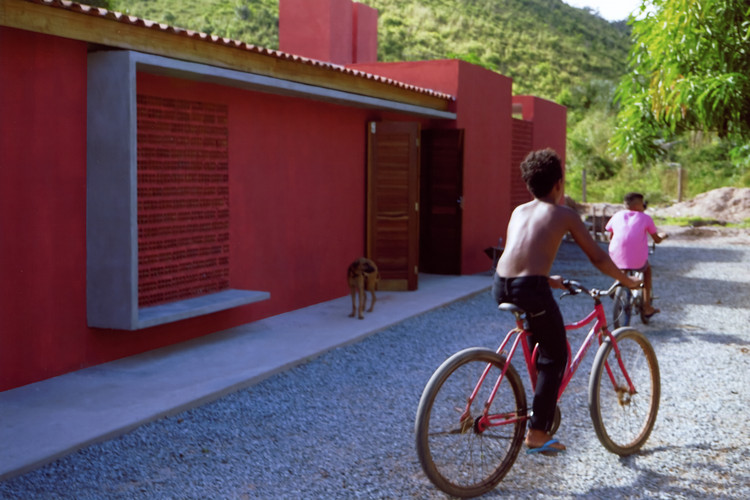
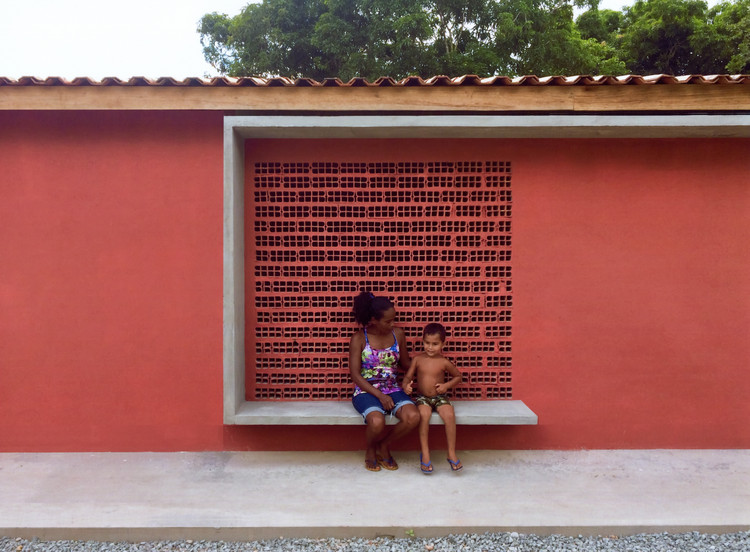

The lack of public spaces in the town motivated us to introduce facilities like the sunroom and concrete bench on the facade. These non-prescribed spaces invite the community to meet. The internal courtyard located between the coconut cooking and breaking areas articulates the plan. This open space is used as both meeting space and sun-drying area. The courtyard enclosing walls made of hollow ceramic bricks laid horizontally allow for cross ventilation, light and views out and into the room. Permaculture principles were incorporated into the project because it is inserted in a region that has no sewage system or constant supply of potable water. The building has rainwater collection so that farmers can manage their water resources during the dry season; Septic tank biodigester for sewage treatment and banana circle to filter gray waters. These systems require maintenance encouraging the community awareness of available resources. Direct contact with these economic techniques also allows them to be disseminated and recycled in the community.
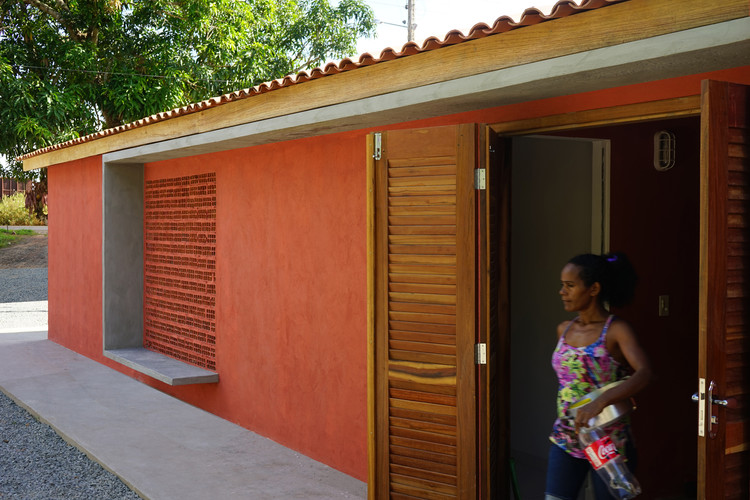
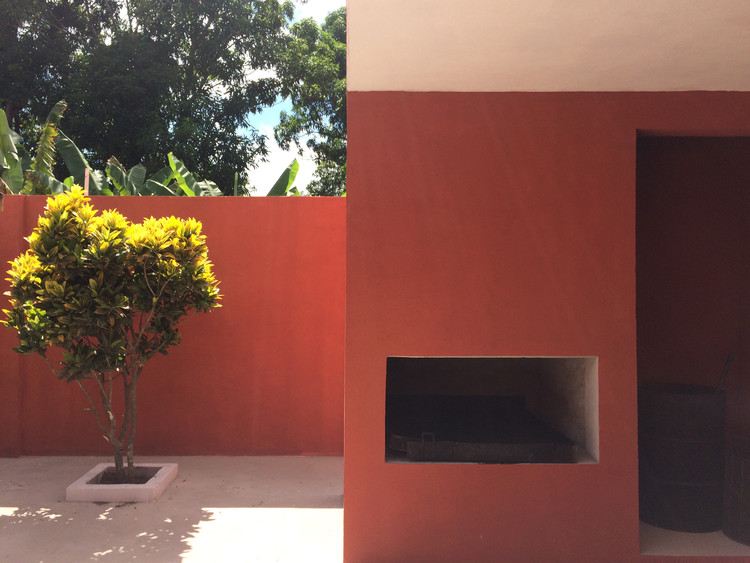
This project is part of a wider plan for renovation works for small cooperatives and associations in the interior Maranhão and Pará states, in the north and northeast of Brazil. In a country with enormous continental diversity and cultural richness, this project represents the opportunity to defend some sense of social justice, to ensure job security, comfort in the routine of a group of women. This was an opportunity to work with those who produce food on a small scale and with respect for the environment and, in the end, these products are eaten in the big cities. The women's group worked in a rented space. Therefore the possibility of acquiring their own headquarters meant the opportunity to work in a space designed specifically for their needs. The new headquarters had to be built as soon as possible due to logistics and construction costs in a region far from consolidated urban centers. All these variables that we incorporate into the design and construction process meant a challenge, a great learning process that undoubtedly influences the way we think architecture.
